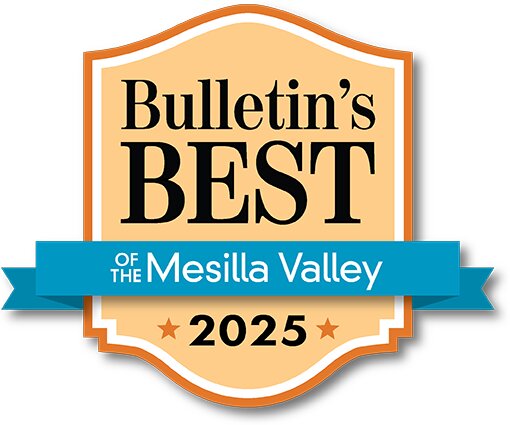Wind: mph,
Welcome to our new web site!
To give our readers a chance to experience all that our new website has to offer, we have made all content freely avaiable, through October 1, 2018.
During this time, print and digital subscribers will not need to log in to view our stories or e-editions.
Editor’s note: The Nov. 8 general election ballot will include four general obligation bond questions for voters who live in Las Cruces (in addition to the state GO bond questions all New Mexico voters will vote on). The four questions are 1) $6 million affordable housing fund to create homes and jobs; 2) $10 million for a new fire station to enhance public safety and shorten response times; 3) $2 million for park improvements; and 4) $5 million for phase two of the East Mesa Recreation Complex.
If Las Cruces voters pass the general obligation (GO) bond question seeking $6 million for affordable housing, it will allow the City of Las Cruces to leverage other state and federal funding sources worth several times that amount and is important for the entire community, City Housing and Neighborhood Services Manager Natalie Green said.
Las Cruces Coalition for Attainable Housing (LCCAH) members also expressed their support for the bond.
Green said the city has a shortage of about 5,600 units of affordable housing, generally defined as housing for which the occupant is paying no more than 30 percent of his/her income.
The need for affordable housing, including both single- and multi-family dwellings, has increased because of the sharp rise in home prices in Las Cruces, Green said. The average sale price of home in Las Cruces was $183,000 in 2009. It was more than $311,000 this month, according to city documents.
Putting GO bond funds into the city’s land bank and affordable housing trust fund is “investing in the future of Las Cruces,” Green said, and a “catalyst for economic development.”
"The housing bond issue will match city dollars with private, state and federal funding from nonprofit partners and private developers,” said Monique Lopez, co-chair of the Housing Action Team of Doña Ana County Resilience Leaders, which is an LCCAH member. “With a bigger pool of money, nonprofit partners and private developers can build more moderate-priced housing. Housing construction also supports local jobs. Safe, affordable and stable housing improves the health and mental well-being of our families, as well as our local economy."
“This bond issue can help address a basic need for many families, which is having a safe and affordable place to live,” said League of Women Voters of Southern New Mexico board member Jo Galván, who is also an LCCAH member. “The median price of homes continues to escalate, and this bond issue will help build more entry-level housing for low-income families, first-time home buyers, veterans, seniors and people with disabilities on a fixed income. Las Crucens can set an example for the rest of the state by improving the lives of its residents through affordable housing."
LCCAH is a group of local agencies, nonprofits and residents “working to make housing more affordable and attainable for our residents,” the organization said.
Currently, Green said, a minimum-wage earner in Las Cruces must work 60 hours a week to afford a one-two bedroom apartment. For many families, paying the rent means cutting back on necessities like food, clothing and medical expenses, she said.
About 43 percent of renters in Las Cruces are currently paying more than 30 percent of their incomes (“housing cost burden”) on housing, Green said, and a quarter of those pay more than 50 percent.
The median income of Las Cruces renters is $22,185, she said. The median income of city homeowners is $66,682.
Community investment is part of a holistic approach to affordable housing that includes a robust public-private partnership to drive development and government policy that assists that development, Green said. And, it’s “not just building out,” Green said. Affordable housing construction means redevelopment within the core of the city, along with a reinvestment in the city corridors where people live and work.
If the bond is passed by city voters, construction of additional affordable housing units likely would be underway within a year, Green said.
“The City of Las Cruces has set a goal to create 300 affordable/attainable housing units by 2025,” the city said on its website. “A $6 million investment could leverage up to $36.5 million in federal, state and private funds to add another 175 affordable housing units to the city. This would help reduce the shortage of 5,600 affordable rental housing units and give homeless children in the Las Cruces Public School District a place to call home.”
GO bonds
General obligation bonds “are an important source of funding for basic capital improvements (bricks and mortar) that our growing community requires to thrive,” the City of Las Cruces said on its website (www.las-cruces.org/2452/About-General-Obligation-Bonds).
GO bonds “are typically best suited for projects that benefit the general public but generate little or no revenue to pay debt service,” the city said.
The bonds are typically used for parks and recreation facilities and improvements; public facilities such as fire stations, police stations, libraries, senior centers; infrastructure improvements such as roads, sidewalks, trails and drainage facilities; and other projects with strong local support,” the city said.
Visit www.las-cruces.org/2547/2022-GO-Bond and www.las-cruces.org/2452/About-General-Obligation-Bonds.
Other items that may interest you

